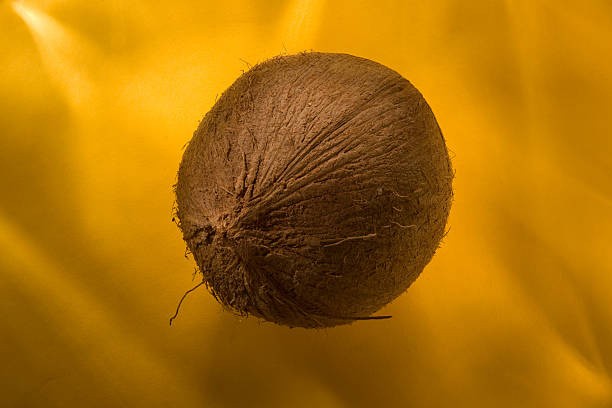
Coconut oil was recognized in Ayurvedic medicine for over 4,000 years as a healthy oil used in medicine. Its health effects were said to be similar to that of mother's milk due to their lipid content. Experts have found that coconut oil contains a substance with healing powers that act as a natural antibiotic and boosts immunity.
The antimicrobial mechanism in coconut oil also helps to activate the anti-inflammatory components of the body's immune response. This finding is supported by studies done in animals and humans.
 (Photo : Getty Images) Coconut Oil Act As Natural Antibiotic and Help Boost Immunity
(Photo : Getty Images) Coconut Oil Act As Natural Antibiotic and Help Boost Immunity
Metabolic Derivatives of Coconut Oil

Metabolic Derivatives of Coconut Oil
The coconut tree is often called the tree of life because each part of it is useful—from its fruit to the trunk and leaves, anyone can make products out of them. Its fruit, the coconut, is called the "super seed" because of its applications in cooking oil, food ingredient, natural treatment for hair and skin, and medication.
According to Ayurveda, coconut oil nourishes the body and gives it strength. In its various forms, it can promote luxurious hair growth, provide skin and hair treatment, and act as an antimicrobial agent.
There are two types of coconut oil: refined, bleached, and deodorized copra oil (RCO) and virgin coconut oil (VCO). The latter is produced from the fresh endosperm of coconuts through the wet extraction process, while the former is made from the dried endosperm of the coconut through dry extraction.
RCO and VCO both have the same fatty acids and triglycerides profile. But VCO has a higher vitamin E content, sterols, polyphenols, and other bioactive compounds.
Coconut oil contains 48 percent lauric acid, a fatty acid responsible for most of the benefits of coconut oil.
The benefits of coconut oil are at par with that of human milk because of the lipids. These only become antiviral or antimicrobial after the infant digests the milk where FFAs and monoglycerides are released from the milk triglycerides by lipolytic activity.
In the case of coconut oil, the body converts the triglycerides into lauric acid, which turns into monolaurin as it gets further metabolized. About 6 percent of the coconut oil gets metabolized and becomes monoglycerides in the body.
FIND OUT MORE: What's the Difference Between Cold-Pressed & Cold-Processed Coconut Oil?
Antimicrobial and Immunomodulation
Numerous studies show that coconut oil has antimicrobial properties, attributing this to its metabolites, namely lauric acid, capric acid, and monolaurin. The effectiveness of lauric acid is better than other fatty acids, while monolaurin is found to be better than lauric acid. These metabolites are shown to be a safe and effective immunomodulatory agent in the immune system.
According to the study of Hierholzer and Kabara, monolaurin can reduce the infectivity of RNA and DNA when viruses attack them. It acts by disintegrating the virus that envelopes the RNA and DNA. Some studies suggest that both Lauric acid and monolaurin inhibit the growth of S. aureus with destructive mechanisms.
VCO metabolites produce highly ordered membranes thought to disrupt the cellular function of the pathogen by affecting signal transduction because of the altered amino acid uptake, altered respiration state, blockage of promoters, and uncoupling of energy systems.
Lauric acid in coconut oil also prevents the binding of membrane proteins to the host cell membrane, which inhibits the production of infectious virus.
READ MORE: 7 Simple Natural Options For A Healthy Looking Skin
Check out more news and information on Coconut Oil on Science Times.
© 2026 ScienceTimes.com All rights reserved. Do not reproduce without permission. The window to the world of Science Times.












